
by Andre Coelho | Sep 25, 2018 | News
On September 15th 2018, Donut-D-Day brought together various Dutch organizations and citizens committed to integrated systemic reforms to fight climate change, socioeconomic inequality, and unstable financial systems. The organizers used Kate Raworth‘s model of Doughnut Economics to imagine possible approaches that would balance the need for minimum standards of living for all people (the social foundation), within the environmental limits of the Earth. This day was intended to be the first encounter of longer series of meetings, aiming to connect people working on themes that are strongly linked and to facilitate their integration and collaboration.
Kate Raworth was present through a prerecorded video presentation in which she emphasized how we are currently overshooting the donut on both sides, with poverty and hunger in the center of the donut, and climate change and environmental destruction on the outside of the donut. In order to eliminate human deprivation while staying within planetary boundaries, she argues we need economies that are distributive and regenerative by design. Sources of wealth creation, particularly housing & land, energy generation, enterprise ownership, money creation, and info & technology, will need to be pre-distributed. Simultaneously, we will need to work within the cycles of the living world toward a circular or cyclical economy, investing in renewables, recognizing the potentials of waste, creating systems of repair and share, and pushing for open source standards, resources, and data. She invited people to join the discussion groups on these topics on her website.
The second presenter was Harold Boven, an economist and co-initiator of the plan Courageously Forward by the Young Democrats, which is a financially covered plan for basic income that would end all poverty in the Netherlands. Harold presented data from a Dutch study (CPB, 2016) that could not find any positive results of the 6.5 billion euros invested in activating employment policy to get unemployed people into jobs. He emphasized that basic income would not lead to inflation because it is fiscally financed and does not require the introduction of extra money. According to him, a basic income of €1200/month per single adult and €300/month per child, adding €600/month per adult when sharing a household. He presented a financing mechanism to cover the 164 billion euros annual cost for such a policy, which would come from the elimination of existing welfare programs (134 billion), the introduction of lightly progressive property taxes (14 billion), environmental and energy taxes for companies (14 billion), and inheritance taxes (2 billion). Disability payments would remain untouched. Apart from the usual advantages attributed to basic income, Harold added that it is a response to the failure to the current system and dissatisfaction with the political establishment, while presenting an alternative for emerging populism.
Anne Knol, from Environmental Defense, shared her insights on what she learned about the incredible complexities of interconnections between environmental and social problems. Anne estimated that science guides about 5% of debates, while emotion, lobby, and the interests of political parties guide the rest. She argued that campaign leaders need to present appealing stories that can compete with the story of capitalism and the widely spread and accepted idea that the market should be allowed to run its course. Anne reminded the audience about the donut economics, and to the dangers of overdoing policy on the environmental front, and then affecting people on the bottom of the income scale. On the other hand, there is the fear that if people’s standards of living are risen, that could lead to more environmental excesses. Hence the need to work on both “sides” of the donut simultaneously, ensuring a just distribution of both the costs and the benefits of environmental policies.

Herman Wijffels (Wikipedia)
The last main speaker of the day was Klaas van Egmond, professor of Geosciences at the University of Utrecht, co-initiator of the Sustainable Finance Lab, and board member of the NatureCollege. He discussed the problems in the current configuration of our financial system and the reforms necessary to break with the types of practices that led to the 2008 financial crisis and that will result in more problems in the future in they remain unchecked. Klaas explained that, in a healthy society, the main goal is the expression and implementation of values, as supported by the economy, in turn supported by the financial system. Klaas proposed that clear boundaries between the public and the private must be reinstalled, banks must not be bailed out and cannot have the power to create money. The community misses out on 40-50 billion euros per year due to money creation by private banks. This could instead be used to fund basic income and a smooth transition to sustainability. These measures would break with the cycle of growth and collapse, lead to a stable economy, and allow for complete elimination of government debts.
The day was wrapped up by Herman Wijffels, co-chair of Worldconnectors and until last October professor of sustainability and social change at the University of Utrecht. He emphasized that our current system is socially and economically dysfunctional and has been bought by capital. According to him, we are facing the end of material growth due to the exhaustion of natural resources and are on a journey through the desert to find a new promised land. Wiiffels spoke about a new type of society, with a fairer distribution of wealth, while putting the planet first. Basic income and financial reform would be key elements in the transformation of the capitalist system. In addition, he said that we need to acknowledge that masculine values are no longer appropriate for the 21st century and we should embrace feminine values, which would mean a greater care for life, connections with the Earth and all people on it.
More information at:
Donut-D-Day was live streaming on Facebook (in Dutch)
Article written by Karin Berkhoudt, reviewed by André Coelho.

by Andre Coelho | Jul 27, 2018 | News
Barack Obama. Credit to: CNBC.
Despite having failed to actually endorse basic income, for the second time, international media is portraying Barack Obama as a supporter. For instance, the Trumpet, a news depot that “seeks to show how current events are fulfilling the biblically prophesied description”, depicts Obama as a hard-core socialist, sending him an indirect message saying that “the Bible warns against a get-something-for-nothing mentality”. However, and apparently, being knowledgeable in clerical issues and having served in the Church of England ministry, hasn’t stopped Dr. Malcolm Torry from supporting and studying in detail the basic income policy.
Another online news service, the Independent Sentinel, which announces it “report[s] the news the media won’t”, blatantly calls Obama a communist. A communist who has “saddled us [in the United States] with the far-left system of healthcare which has been an expensive and failed experiment”. Considering the nature of the privatized-insurance based healthcare system in the US, Sweden’s healthcare could be called an extreme-far-left successful case study. This news article joints Barack Obama and former Greek minister Yanis Varoufakis as unrepented communists who promote basic income, a policy under which “people become enslaved to the State”.
The Mic reports the same event on a soberer tint. However, its post starts out by pointing that Obama “come[s] out in support of an economic policy that is far to the left of anything being proposed by most sitting U.S. politicians”. The writer and basic income Scott Santens once claimed that basic income was neither left or right (it’s forward), but apparently polarized politics is still very much popular in the US.
Quartz Africa reduces the focus on Obama’s reference to basic income itself, to highlight his speech on inequality, and his views on what should be the solution to humanity’s current crisis: an inclusive capitalism, “which protects collective bargaining, breaks up monopolies, enforces laws that root out corruption”. Unresolved remains Obama’s belief that “a job […] provides dignity and structure and a sense of place and a sense of purpose”, while saying in the same breath that “we’re gonna have to consider new ways of thinking about these problems, like universal income.”
In a CNCB article, on the other hand, a more cautious approach is taken concerning Obama, who is, arguably, a more fervent supporter of a job guarantee than a basic income. He his cited to have said that “the job of giving everybody work that is meaningful [will get] tougher, and we’re going to have to be more imaginative, […] to protect the economic security and the dignity that comes with a job”. The article also mentions Obama’s former vice-president Joe Biden, who basically supported that view integrally.
Whether former US President Barack Obama is a basic income supporter or not, it is rising to become one of the most debated issues in contemporary politics. Robert Reich, former President Clinton’s secretary of labor and ex-member of Obama’s transition advisory board, already looks at some sort of basic income policy as “inevitable”, along with tech moguls like Elon Musk. And that’s not only over the elite’s dome, it’s also among the average American citizen, whose support for the policy has been steadily increasing over the past few years, reaching almost half of the population according to recent polls.
More information at:
Karl Widerquist, “Obama speaks favorably about UBI but stops short of endorsing it (for the second time)”. Basic Income News, July 18th 2018
Andrew Miller, “Barack Obama Voices Support for a Universal Basic Income”, the Trumpet, July 19th 2018
S. Noble, “Barack Obama Promoted Universal Basic Income in South Africa”, the Independent Sentinel, July 18th 2018
A.P. Joyce, “Barack Obama signals support for a universal income”, Mic, July 17th 2018
Lynsey Chutel, “Barack Obama says the rich owe the world a huge debt”, Quartz Africa, July 17th 2018
Catherine Clifford, “Barack Obama suggests cash handouts be considered to address workforce challenges”, CNBC, July 18th 2018
André Coelho, “UNITED STATES: Joe Biden believes that jobs are the future, rather than basic income”, Basic Income News, September 23rd 2017
Catherine Clifford, “Ex-Labor Secretary: Some kind of cash handout ‘seems inevitable”, CNBC, July 13th 2018
André Coelho, “United States: American citizens support for UBI rises four times, compared to a decade ago”, Basic Income News, July 10th 2018

by Jason Burke Murphy | Jul 16, 2018 | Opinion
Interview with Democratic Presidential Candidate Andrew Yang
By: Jason Burke Murphy
[Note from Jason Burke Murphy. This interview took place on June 11th, 2018. Yang took time out of one of his presidential campaign rallies and fundraisers to speak with me. I describe the rally in US Basic Income Guarantee Network’s blog. After I stopped recording, he expressed his hope that supporters of basic income would get behind his campaign early. Andrew Yang was then, and still is as of this writing, the only announced candidate for the Democratic Presidential nomination.]
Murphy: How did you first hear about basic income?
Yang: I think I heard about it first for sure from Martin Ford’s book Rise of the Robots. I heard about it before then in articles but Martin Ford’s book made an impression. Andy Stern’s book Raising the Floor cemented the idea while coming from a different angle. Martin is a technologist and Andy is a labor leader. Stern’s book clinched it for me. I found myself coming to the same conclusion. Now basic income could no longer just be about technologists over-hyping the near-term progress of automation. Stern is someone who has a firm grasp on the labor market in the US.

Promotional for Andrew Yang’s book presenting his argument for Basic Income, Medicare for All, and “human capitalism”.
Murphy: How did friends and family react to your decision to run for President?
Yang: Oh, my parents were initially anxious and worried about it. Friends had a range of reactions. One cried tears of joy and has been immensely helpful. Others were skeptical. I will say now that support is very strong with friends and family. When you tell someone about a decision, they might react one way but when the decision is made in public, then they have a different attitude and stance.
Murphy: Joseph Biden, a possible candidate, has explicitly rejected basic income. It seems like other presumptive candidates have stayed quite distant. Why do you think that is the case?
Yang: I think in Joe’s case—and I read his comments—he is stuck in this framing of a subsistence model in which value is tied to showing up at an hourly waged job. His explicit argument for why basic income is a bad thing is that people need work. What he doesn’t realize is that universal basic income is pro-work. It is pro doing work that people actually want to do. Joe is stuck in an era when we thought that, if someone had a certain amount of money in their pocket, they would want to do nothing at all. That is an old welfare-era framework that I think was never true. [Laughs.] In Joe’s mind, that relationship is still there. Other Democrats are going to resist making commitments in this direction because they are afraid of being painted as “socialists” or economically unsophisticated. In truth, it requires a degree of economic sophistication to understand basic income and to see how it would be great for our economy and our people.
“Other Democrats in my opinion are not sophisticated enough to understand the impact a basic income would have in the economy… They do not realize that we would be channeling money back into our economy through the hands and the decisions of our citizens.”
Andrew Yang
Murphy: Do you think as people hear about basic income, they are going to think more about economics?
Yang: What happens right now is that people are stuck in this scarcity mindset in which they ask how we can afford it. Won’t it cause rapid inflation? Won’t it make purchasing power go away? None of that is true! [Laughs.] So, other Democrats, in my opinion, are not sophisticated enough to understand the impact a basic income would have in the economy. They are stuck thinking that the money would be “gone” and we would need to “go get more of it.” They are not realizing that we would be channeling money back into our economy through the hands and the decisions of our citizens. The vast majority of the money would be spent in our regional economy every day. The Roosevelt Institute’s estimates that it would create four and a half million new jobs and grow the economy by two and a half trillion.

Murphy: I really liked that paper. For one thing, it is methodologically very cautious. For another, I liked basic income before I knew it would be that good.
Yang: Yeah, their projection was based on it coming from deficit spending and they posited a lower impact if it was paid for by taxes. Whereas, I am very confident that, simply by shifting money to the hands of the people most likely to spend, you would induce economic growth. One thousand dollars a month in the hands of a really wealthy person does absolutely nothing. It just becomes a line item somewhere.
Murphy: Money in the hands of the wealthy, if spent at all, goes into the streets that are already looking pretty good.
Yang: It just stays in someone’s account. When money goes to anyone in the bottom half of the US population then it will be spent on things that will manifest themselves in local businesses in the community.
Murphy: One of the reasons I support a basic income is that I grew up in Arkansas. A region like the Delta is invisible politically. I just know that very few other approaches are going to get anything down there.
Yang: That’s right. Virtually nothing else.
Murphy: If someone has a big plan for education and job training, I am not against those, but I doubt it will actually get to the neighborhoods I worked in there in Arkansas.
Yang: You are right.
Murphy: How are you looking to fund a basic income?
Yang: The main way we need to fund it is through a value-added tax. A VAT is an efficient way to raise revenue, it taxes consumption, which is what we ought to be taxing instead of something like work and labor. We are the only industrialized economy that does not use the VAT. We would be harvesting the gains of automation and new technologies much more effectively than income-based taxes.
Murphy: There are a few other proposals like a carbon tax or a tax on income above the one percent. What do you think of these other proposals that pop up?
Yang: I think some proposals try to finesse something that cannot be finessed. We try to find a way to fund a basic income without causing any pain or friction. I support taxing carbon and we will tax rich people. But we are talking about re-organizing the way that value is distributed in our society. So we can’t think that we can do that in some elegant way that leaves most people untouched.
[Note from Murphy: Yang’s platform also includes a financial transactions tax, which we did not discuss. There is also a call for an end to the current favorable tax treatment for capital gains and carried interest. That is not listed as funding for a BI.]
Murphy: Thinking of that, sometimes supporters present basic income as a reformist measure and sometimes others present it as a very radical transformation.
Yang: You can put me in the “radical transformation” category.
“Fifty-nine percent of Americans can’t afford to pay a surprise $500 charge. Our life expectancy is declining due to a surge in suicide. Seven Americans die of opiates every hour. Americans are starting businesses, getting married, and having kids at record low level or at the lowest in multiple decades. So, society is disintegrating and even very sick.”
Andrew Yang
Murphy: You are the first candidate [for the Democratic Presidential nomination] to announce. This is giving you access to curious people. I saw an article in which you were meeting with New Hampshire Democrats. That is a new crowd for basic income. How are these meetings working for you?
Yang: They are interested in what I have to say. Most of what I have to say revolves around the fact that we are going through the greatest technological and economic shift in human history. That is objective. That is data-driven. People find it very resonant. They sense that this is true. Most of our conversations are around what is happening with technology and labor and the economy and job polarization—all things that we are experiencing right now. One of the dangers of basic income right now is that it can seem like we are debating different versions of utopia. When we turn someone’s attention to the depth and breadth of our current social problems, we can talk about what can actually make a difference. The situation you saw in Arkansas is becoming more and more true for more and more Americans. May I give some of the stats that I feature in my book and in speeches?
Murphy: Absolutely.
Yang: Fifty-nine percent of Americans can’t afford to pay a surprise $500 charge. Our life expectancy is declining due to a surge in suicide. Seven Americans die of opiates every hour. Americans are starting businesses, getting married, and having kids at record low level or at the lowest in multiple decades. So, society is disintegrating and even very sick.
Murphy: We often use words like “self-employed” and “side hustle” for people who are…
Yang: Who are being exploited by a billion-dollar tech company that says “be your own boss” but pays you nickels on the dollar.
“We need to quit measuring everything based on GDP and profitability at the expense of human values. We should direct our energy towards thing that improve lives. The concentration of gains in the hands of a few is a toxic way to move forward.”
Andrew Yang
Murphy: Not long ago, we would hear people say that we need to choose between universal health care and basic income. Your platform simply has both. It seems like we are having a similar moment with a jobs guarantee. We keep hearing that we need to pick one or the other. It seems like many good people think that basic income crowds out something they are very concerned about.
Yang: That is an unproductive approach. We should not get lost in dueling utopias. If you are for universal health care, you should think about how much one thousand dollars a month will open up access to health care. If you care about gender equality and you want to see women avoid abusive workplaces and domestic situations—a thousand dollars a month could be vital. Let’s start with the cash because that will be the easiest thing to get done.

Opening page of Andrew Yang’s Presidential Campaign website.
Murphy: Your platform has multiple issues alongside basic income.
Yang: Definitely. I am all for single-payer health care and we can certainly do better with health than we are at present. That said, even after I win the Presidency, giving everyone cash will be easier to execute than universal health care. Andrew Stern points out that the government is terrible at many things but it is excellent at sending cash to many people promptly and reliably.
Murphy: Any ideas on how a basic income would affect foreign policy?
Yang: In the end, I think basic income will rationalize our spending, make us more optimistic, and smarter about our resources. Our citizens may end up less likely to want to lose a trillion dollars on military interventions worldwide.
Murphy: You call your worldview “Human Capitalism”. For some people “capitalism” refers to markets. For others, it refers to the domination of wealthy people.
Yang; First, I would agree with those who think that our current version of capitalism and corporatism is why our disintegration is happening. I am not a fan of continuing down this road. We have to reverse course as fast as possible. Reversing course, however, does not mean abandoning the things that have made capitalism effective. The problem is that our measuring sticks are all wrong. There are more effective ways to do things. Markets can help find the effective ways. We need to quit measuring everything based on GDP and profitability at the expense of human values. We should direct our energy towards the things that improve lives. The concentration of gains in the hands of a few is a toxic way to move forward. This is bad even for the so-called “winners” in society. Studies have proven that the winners in an unequal society are more anxious and depressed than the winners in a more equal society. This is enlightened self-interest. I can sympathize with anyone who thinks that “capitalism” is a dirty word. The first line in the description of human capitalism on our website is “Humans are more important than money.”
Murphy: Thank you for speaking with me between events. Is there any last word you want to make to readers?
Yang: I am hoping to get support soon from the basic income community. I have been campaigning for about four months. We are drawing from their ideas. We hope we can see them sign up because we need their support.
You may disagree with some item on my platform but I hope you can see that the direction and the spirit are right and that we can push a genuine conversation about basic income. We could really use their passion. We need a movement that recognizes that our community is disintegrating and that basic income is an essential answer. I hope that basic income activists can believe in this campaign.

Photo of Jason Burke Murphy (Left) and Andrew Yang (Right) shortly after this interview.
[Note from Murphy. Some portions of this interview were edited slightly for clarity as we moved from spoken word to written word. No content was altered. Thank you to Andrew Yang for taking time out of his campaign to speak with me. Thanks to Tyler Prochazka for proofreading.]
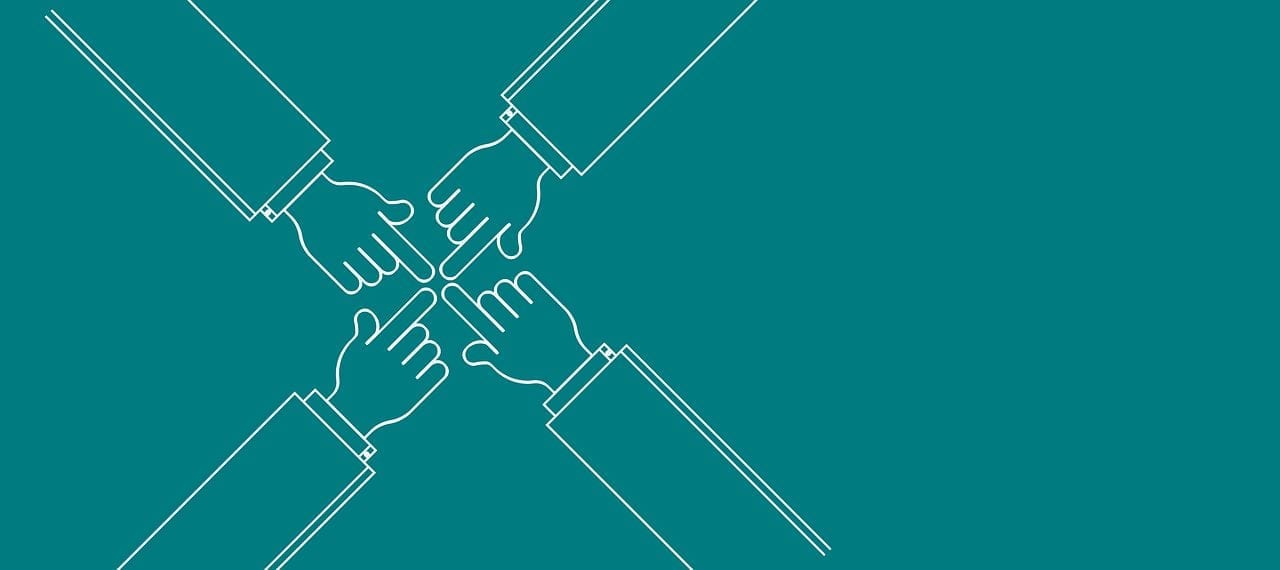
by Guest Contributor | May 28, 2018 | Opinion
A step to a future of solidarity and sharing
For hundreds of thousands of years, men and women lived in tribal groups, practicing mutual cooperation and solidarity. In the present we live in capitalism, competing among ourselves, driven by individual ambitions to ‘have’. This is not doing us any good. However, we can see it as a painful but necessary civilizational phase, a means of developing the capacity to produce all that’s necessary for the material life of all. The age of capitalism has only lasted 200 years. A better future could be drawn with the re-establishment of an economy of solidarity between people. We propose a process of systematic, automatic and unconditional transfers of money between people, from those who have more to those who have less. We call it Unconditional Basic Income of All for All, or ‘UBI-AA’.
The Past – from Ancestral Economy to Capitalism
Human societies in which all men and women have lived on Earth since people here exist, and until the formation of the first sophisticated civilizations, were tribal groups. They functioned through cooperation and solidarity between their members in tasks such as obtaining and distributing food, building shelters and family dwellings or taking care of community assets; tasks that today we would call ‘economic’. In fact, over hundreds of thousands of years of human presence on Earth the whole economy was cooperative and supportive. And it was sustainable then.
After the emergence of the first sophisticated civilizations and empires – about 6,000 years ago – things began to change, and the forms of economic organization put into practice came to vary from then. Today, however, all the economic diversity that has existed over those 6,000 years is virtually nullified, and a unique model has once again consolidated. It is called capitalism, and it has been going on for about 200 years.
While the ancestral economic mode was based on solidarity and cooperation between people, on a harmony between them and nature and on an orientation towards the mere satisfaction of their needs, capitalism is characterized by competition among peers, by the predation of the Earth and by an orientation of its agents towards unlimited material accumulation. Both models are hegemonic, each in its own time. But that’s all they have in common; as for everything else, it is difficult to find more opposing realities.
Can, like its ancestral homologous form, also this present ‘state of the art’ in economic organization – capitalism – last for hundreds of thousands of years? It doesn’t seem possible, given the condition in which it left us humans, and the planet, after only 200 years. And yet, despite its deeply dark sides, an important merit can be attributed to capitalism: with the demand for accumulation and profit it gave us machinery, techniques and knowledge that can now allow us to have the resources for the material comfort of all. This is only a possibility and not inevitable because although these machines, techniques and knowledge give us the capacity, they alone do not guarantee that we will use it. However, capitalism cannot possibly make any sense in history unless the immense price it charged and still charges us eventually results in the actual extinction of the material scarcity from the face of the Earth. Only then will it be seen as a process of rising human civilization to a higher level, albeit with great suffering.
Thus, the great question of the present is how to accomplish the potential that capitalism offers us, to free ourselves from the ‘fatality’ of material scarcity. The simple progress of the economy, as we have it, does not seem to be the way. Reality shows us very clearly that the mere growth, without any change or innovation in the logic and processes of the present economy, will never raise the condition of all, although it may greatly improve it for some people. Neither the strengthening of the so-called welfare state, in its traditional, bureaucratic, expensive and life-controlling form, can do more than mitigate poverty. Traditional welfare will never eliminate poverty and it charges from its beneficiaries a price in dignity and in humanity that the more unnecessary it becomes, the more intolerable it gets.
No, capitalism does not inherently have a mechanism to guarantee essentials for all. Let us resurrect from our ancestral economic way its essential element: solidarity among people.
A Future – the UBI-AA
Solidarity among people is the essential idea of the alternative distribution model of the resources generated in society we will talk about here: the Unconditional Basic Income of All for All, or ‘UBI-AA’.
To show what it is and how it works we will turn here to an explanation given elsewhere:
The UBI-AA is a revenue redistribution process designed to operate monthly, providing automatic and unconditional transfers among citizens, from those who have higher incomes to those with low or no income at all. Built, supported and leveraged by them, the process will invite the participants to take responsibility and engage in their communities, which will reinforce them.
It works in two stages:
1) As it is acquired, each member of the community discounts to a common fund – a ‘UBI Fund’ – a proportion of their income, at a single and universal rate;
2) At the end of each month, the Fund’s accumulated total is equally and unconditionally distributed by all members of the same community.
This simple process of treating everyone equally puts those who in each moment have above-average incomes to deliver to the UBI Fund more than they receive from it, and those who have below-average incomes would receive more. Thus, the process operates a joint distribution between the participants of part of their individual incomes. In addition, to reduce inequalities between them, this solidarity between peers creates an unconditional guarantee of income for all, that is, an Unconditional Basic Income.
It follows from the action of the UBI-AA process the loss of available income by some and its gain by others. For those who lose money, it is important to limit the loss, while maximizing the gain for the rest to ensure broad acceptance of the policy.
The demand for this double result should not, however, mean a devaluation of the possibilities of mutability of all individual positions. With the passage of time and with the exercise of the options that the process itself will open to the participants, the situations of income “winners” or “losers”, in which each of them will at each moment be, should always be seen as circumstantial.
To make possible its intended effects, the implementation of the UBI-AA should be accompanied by the release of its participants from the burden of personal income tax. Such tax relief will compensate them for the contributory effort required by the UBI-AA process, although, for those above a certain level of income, such compensation may turn out to be merely partial.
Abolished the personal income tax, the moderation of loss for citizens with higher incomes and, at the same time, the material significance of the gains to those in the opposite condition, will be possible if the rate of contributions to the UBI Fund is set at an optimal level, balancing the two outcomes. [1]
A more complete description of the UBI-AA process, as well as a simulation of the financial effects it would have produced, both in individual citizen spheres and in the State budget, hypothesizing it in force in Portugal in 2012, can be seen here.
UBI-AA differs from most of the traditional redistributive processes in operation because it is unconditional; and from most of the unconditional alternative processes for being a construction of common citizens instead of the policy of a government, a central bank or any other ‘power’.
What is proposed with the UBI-AA is not directly the creation of an unconditional guarantee of income for all. The proposal is the institution of an alternative form of organization of the economy in its distributive side. This will be accomplished with the income distribution process described above; a process that will favor the rehabilitation of values such as solidarity and voluntary cooperation between people, and of which the creation of an unconditional guarantee of income for all will be a corollary.
We hope that may contribute to the flourishing of a new culture, less marked by the centrality of material goods. Who knows if making everybody’s access to essential material resources as simple as the possibility of breathing, will not end up instilling in us the same attitude towards those resources – money and things it buys – as that we have towards the air we inspire: no matter how valuable it may be to us, we do not quarrel with each other for it; we use the quantities we need. Accumulating it would no longer be necessary.
Such cultural shift would certainly be a great step forward for us, human beings, and very good news for Earth.
[1] This stretch is an English translation from Projeto de um RBI – Local – Solidário – Voluntário, [Project of an UBI – Local – Supportive – Voluntary], by Miguel Horta, 2017, available (in Portuguese) from: https://pt.scribd.com/document/341205904/Projecto-RBI-Local-V-2017.
Written by Miguel Horta





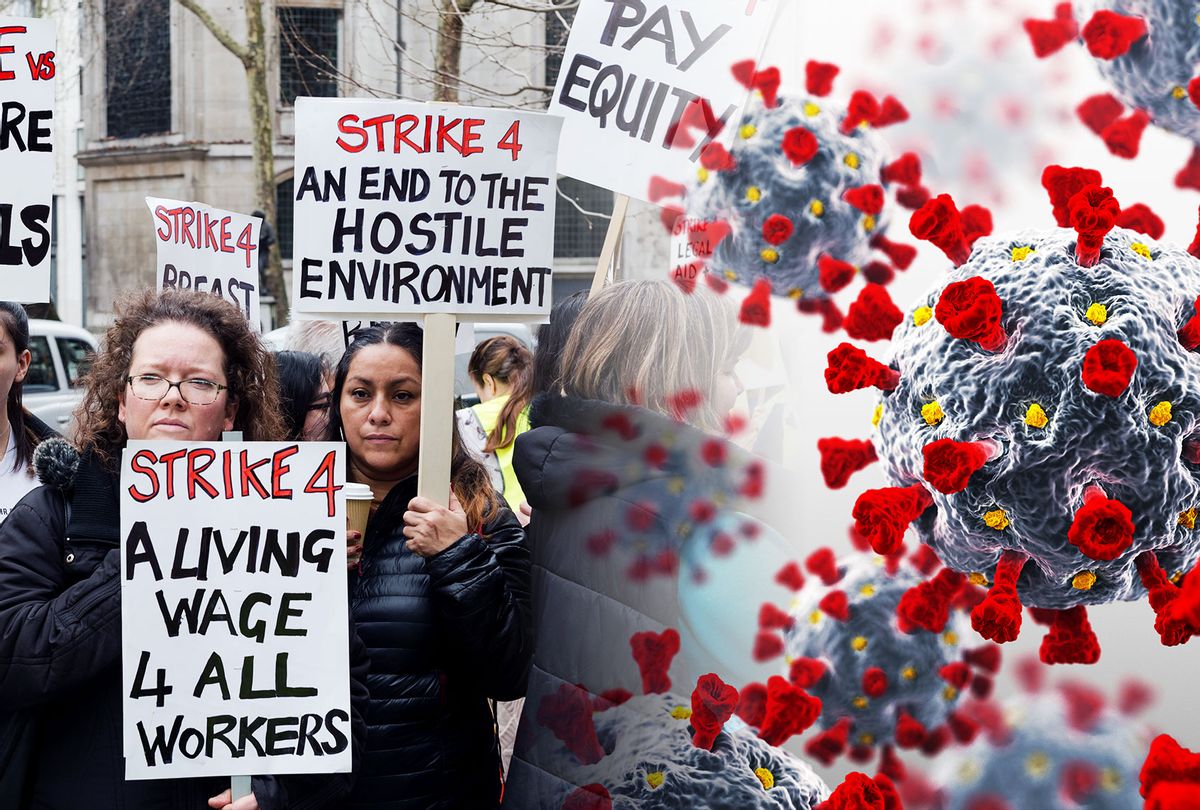





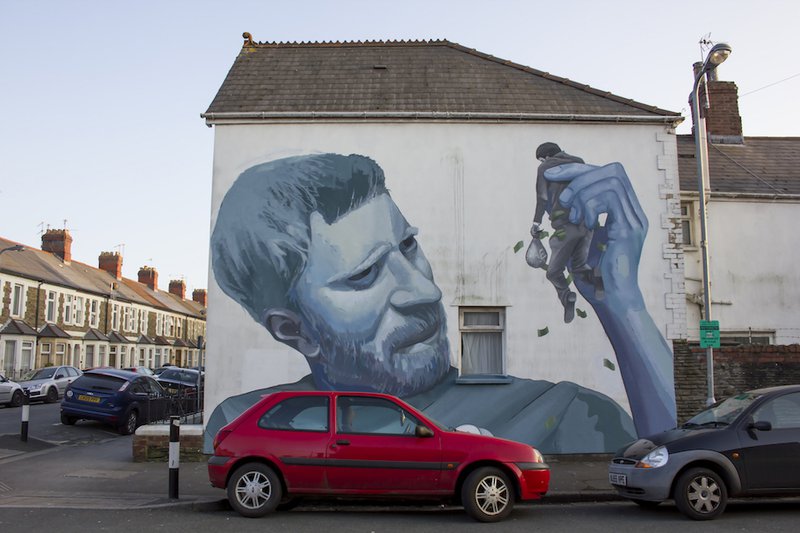
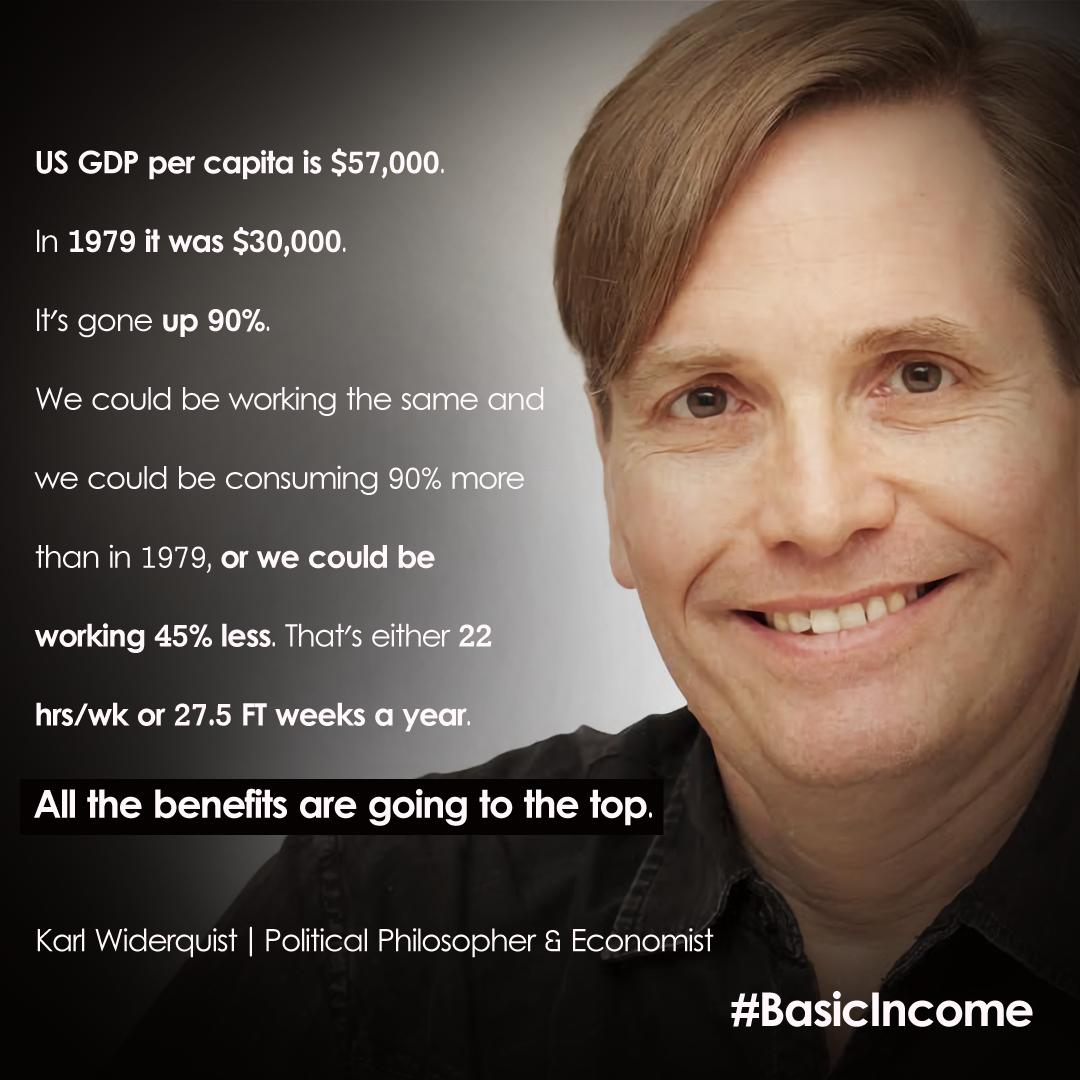


 CIRS,
CIRS, 
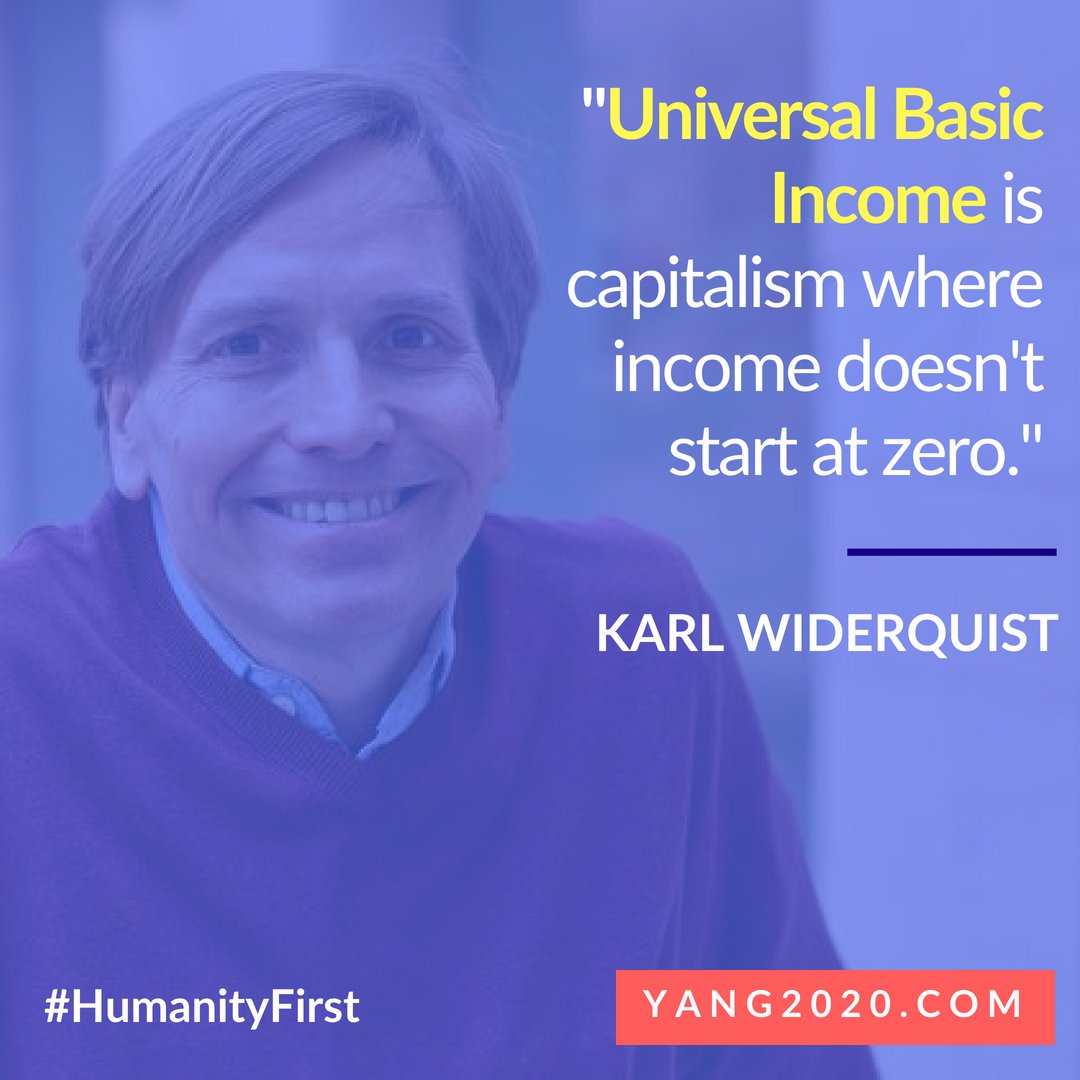



 “
“





